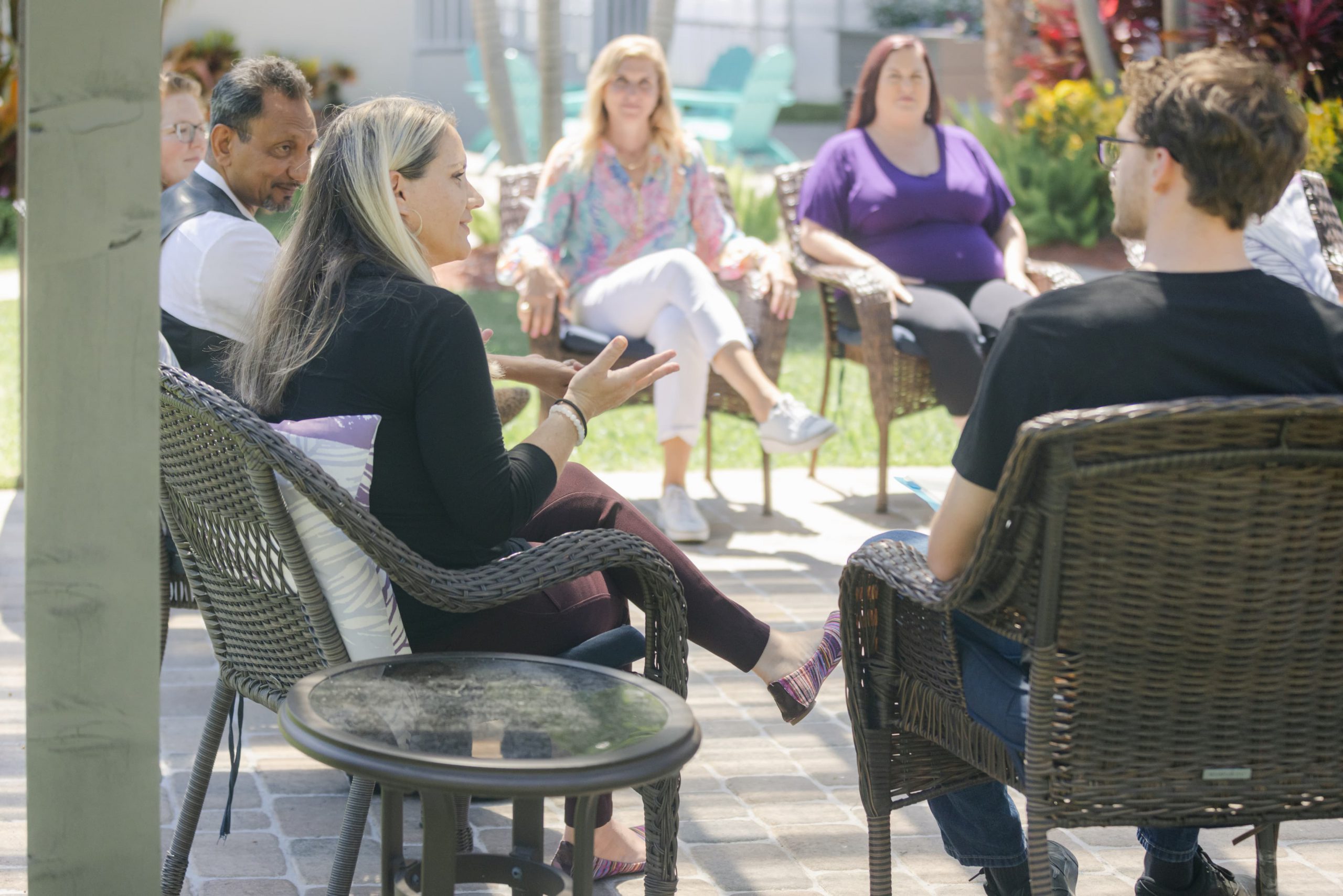
What Is Generational Trauma?
Trauma experienced during childhood or even as an adult can linger and may not end with the individual who experienced the trauma. Research has shown that these adverse experiences may pass from generation to generation, almost as if it’s genetic. Generational trauma can then become a cycle. The good news is that this cycle can be broken through open communication between generations and help from trained professionals.
Generational trauma, also known as intergenerational trauma or transgenerational trauma, is initially experienced by one person, but the trauma passes from one generation to the next. According to the American Psychological Association, children of Holocaust survivors are the most widely studied group and where the theory of generational trauma began.
The concept that trauma can be inherited is tied to an emerging field of study called epigenetics. In a nutshell, epigenetics is the study of inherited changes in a person’s DNA created by environmental events, such as severe trauma. It’s theorized that generational trauma can also occur in the womb when chemicals produced by the stress felt by the mother impact the fetus’ development.

Types of Generational Trauma
Any experience that causes serious mental, physical, and/or emotional harm is considered trauma. If this trauma deeply disturbs a person, it could be passed down through generations. A few examples of trauma that could be passed on to other generations include:
Childhood Abuse or Neglect
According to the National Child Abuse and Neglect Data System, about 618,000 children nationally were victims of child abuse and neglect in 2020, the most recent year the Child Maltreatment Report was released. Mistreatment among girls was slightly higher than among boys. Of the reported cases, 76.1% of children were neglected, 16.5% were physically abused, and 9.4% were sexually abused. An estimated 1,750 children didn’t survive their maltreatment.
Family Violence
Family violence, also called domestic violence, covers a wide range of abusive actions. Although physical abuse is the most common form of family violence, it also encompasses emotional, psychological, sexual, and financial abuse, as well as threats meant to influence the behavior of another. Family violence may occur between intimate partners, such as spouses, dating couples, or former couples, and non-intimate partners, such as parents/children or siblings.
Alcohol and Drug Addiction
Alcohol and drug addiction occur when a person continues to use these substances, even when they cause serious harm to their health or social standing. Drugs are any chemical substances that can change how the mind and body work, including illegal drugs, prescription medications, and over-the-counter medicines. The 2021 National Survey on Drug Use and Health created by the Substance Abuse and Mental Health Services Administration reported that 2,511,000 people received treatment for illicit drugs and 2,570,000 people received treatment for alcohol in the past year.
War-related Trauma
War veterans who experience combat or other war-related trauma may experience anger and fear. When these feelings don’t subside within a few weeks or months, they can manifest into post-traumatic stress syndrome, depression, and anxiety. The U.S. Department of Veteran Affairs reports that 5% of men and 10% of women will experience PTSD in their lifetime, but 30% of Vietnam Veterans, 10% of Gulf War Veterans, and 15% of Operation Enduring Freedom and Operation Iraqi Freedom have already received a PTSD diagnosis.

How Is Trauma Passed Down Through Generations?
Researchers have performed numerous studies surrounding generational trauma to demonstrate how it’s passed down from generation to generation, starting with clinical problems within the offspring of Holocaust survivors. The First Nations Regional Health Survey looks at generational trauma among Native Americans, while other studies have researched trauma due to displacement, colonization, genocide, slavery, and early childhood maltreatment.
Studies of the intergenerational effects began in the late 1990s, including relative contributions before conception, in the womb, and post-birth. Other ways it’s been suggested that trauma can be passed down are through cultural conditioning, dominant family narratives, emotional wounding, aggression and micro-aggression, and dehumanization toward others.

What Does Generational Trauma Lead To?
Trauma can leave a chemical mark on genes leading to this trauma passing to future generations. When this occurs, it can manifest into a higher risk of mental illness, such as anxiety, depression, and PTSD. Generational trauma can also lead to an increased risk of addiction, such as alcoholism and substance abuse disorders. Other common effects of intergenerational trauma include:
- Inability to share emotions openly
- Lack of trust
- Poor self-esteem
- Irrational irritability and anger
- Hypervigilance
- Over-protectiveness without any danger present
- Unreasonable fear of injury or death
- Separation anxiety
- Issues with physical health
- Extreme reactions to stress
- Social distancing and withdrawal
- Recurring thoughts of suicide
Who Can be Affected by Intergenerational Trauma?
Anyone can experience generational trauma. However, specific cultural groups who have experienced historical trauma may be at a higher risk than others. Historical trauma is a type of multigenerational trauma impacting a specific racial or ethnic group who experienced traumatic events in the distant past that continue to affect current generations many years later. Some common groups experiencing historical/generational trauma include:
Holocaust Survivors
During World War II, members of Nazi Germany and its allies persecuted and attempted to annihilate people of the Jewish faith. Those who lived through this experience in a concentration camp, in hiding, or as a refugee are considered Holocaust survivors. Holocaust survivors and their offspring have been the most widely studied group over the longest period regarding generational trauma. Most studies discovered atypically high rates of depression, anxiety, and PTSD, but some studies found little to no effect.
Native Americans/Indigenous People
Native Americans experienced numerous historical traumas, including violent colonization through repeated massacres, forced migrations, and various assimilation policies that stripped away their heritage. Some indigenous peoples also had their children forcibly removed and placed in federal or mission boarding schools.
People of Color
People of color have experienced segregation, racism, discrimination, and resulting poverty for generations, potentially causing historical/multigenerational trauma. African Americans have especially dealt with these and other traumas, including forced slavery leading to current manifestations like mistrust of police.
Immigrants
Traumatic experiences may differ dramatically by the specific group of immigrants due to the variations in cultures and the reasons for immigration. Voluntary versus forced relocation due to natural or manmade disasters, famine, or conflicts can all have varying impacts. They may have also been exposed to forced assimilation, discrimination, colonization, racism, and genocide.
Although research has shown that certain groups with ancestral trauma have a higher likelihood of experiencing generational trauma, it doesn’t automatically mean they will experience it. Multiple factors contribute to generational trauma, and this is just one piece of the equation.

Can You Heal from Generational Trauma?
Generational trauma can be stopped. Just like trauma can be passed to future generations, so can the ability to overcome this trauma and build resilience. Seeking help from professionals trained in trauma therapy can reduce the likelihood that future generations will experience the effects of generational trauma. Getting help for the entire family through a family recovery program may be necessary to fully stop the cycle. However, there’s no single path to healing generational trauma, so healing often looks different for everyone. Some ways to help begin generational trauma healing include:
Defining the Source of Generational Trauma
Identify the generation in which the trauma originally occurred by researching your family history. By defining the source, a person can better understand the trauma’s impacts on each generation. Individuals continue to struggle with behaviors that don’t make sense without knowing what happened in the past that impacted later generations.
Acknowledging the Trauma and Regain Control
After determining where the trauma came from, acknowledge the validity of the trauma. This may be one area that has kept a family stuck in ongoing patterns that continue passing the trauma from generation to generation. This acknowledgment makes it easier to uproot core beliefs and regain control.
Practicing Self-Care
Self-care relies on developing compassion for yourself and taking care of yourself so you can be healthy. It’s also an important strategy to boost mental health when living with generational trauma. Self-care may include setting boundaries, getting adequate sleep to help regulate emotions, exercising to release feel-good endorphins, expressing gratitude to prevent focusing only on the negative, and meditation to soothe the negative thoughts and feelings associated with trauma.

How to Heal Generational Trauma at Beachway Therapy Center
Seeking support from a professional is a crucial step to healing generational trauma. Beachway Therapy Center’s Trauma Track Program helps individuals find understanding, clarity, and resolution. Trauma track patients attend trauma-focused group therapy to help them learn they’re not alone, and complete various assignments.
Research shows that many people living with substance abuse also have unresolved trauma, which could include generational trauma. Beachway’s clinicians treat both simultaneously to help individuals along their path to recovery and healing. Mental health issues, such as anxiety, depression, and PTSD, also often go hand-in-hand with substance abuse. Beachway offers dual diagnosis treatment programs to address both and help patients overcome their addictions and co-occurring mental health disorders.
Beachway Therapy Center has been dedicated to helping patients overcome addiction and mental health issues through highly individualized care since 2008. We’re a nationally recognized substance abuse treatment provider specializing in treating co-occurring mental health disorders. Contact us and let our dedicated team of experts empower you to overcome your battle with addiction and/or mental health today.



